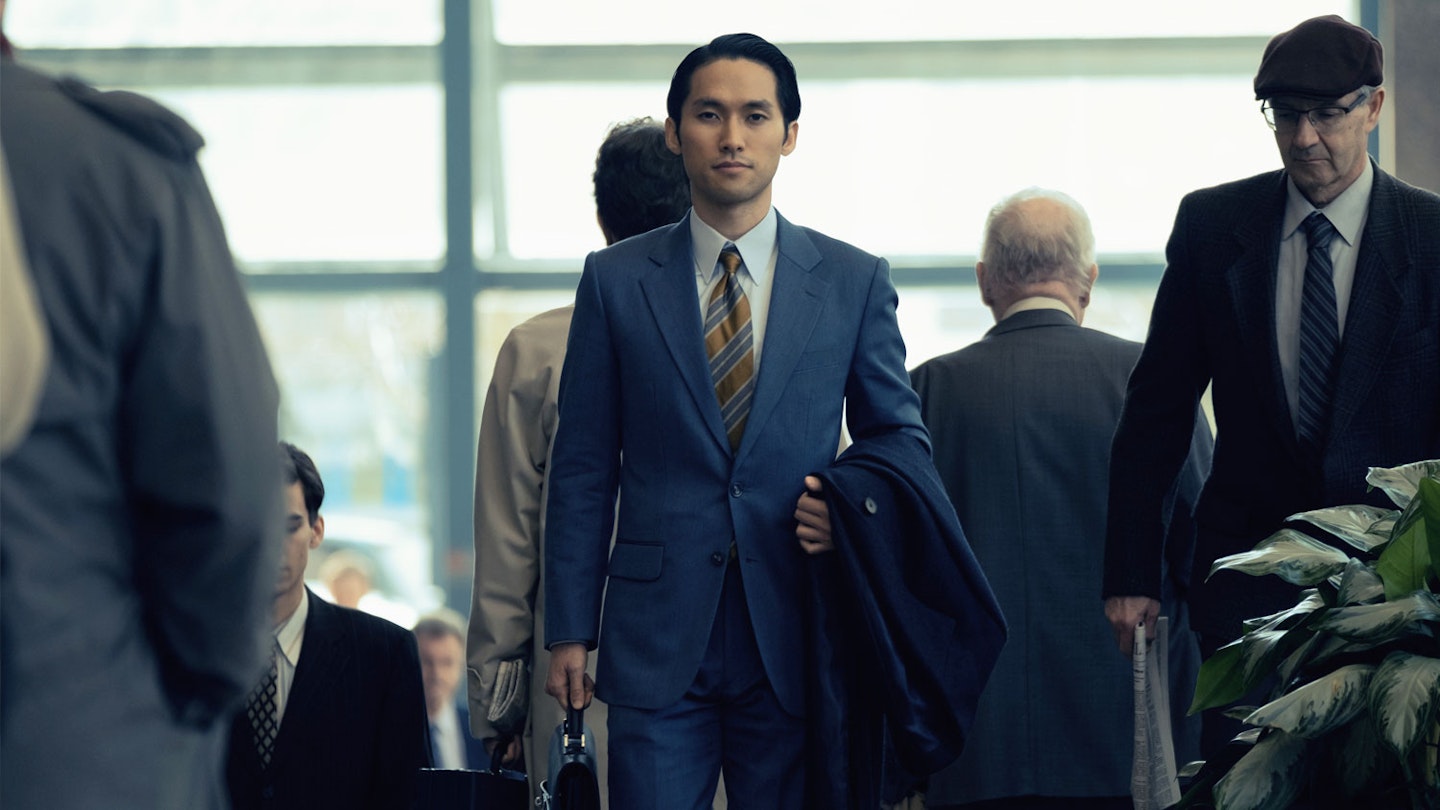Streaming on: Apple TV+
Episodes viewed: 8 of 8
Like Peacemaker, Apple TV+’s Pachinko throws up a dance-tastic title sequence, the cast strutting their stuff in a fantasy pachinko parlour to The Grass Roots’ earworm ‘Let’s Live For Today’. But if James Gunn’s show feeds off the nutty energy of its opener, this adaptation of Min Jin Lee’s bestseller stands in direct contrast to the candy-coloured opiate. Adapted by Soo Hugh, Pachinko is the sometimes gruelling, sometimes uplifting but always clear-eyed and gripping story of a Korean immigrant family across multiple generations and different continents. Spanning pretty much the entire 20th century, it’s narratively bold, intellectually ambitious, visually stunning, incredibly moving — Pachinko is so full it makes most TV look anaemic in comparison.

Hugh’s masterstroke is to take the linear chronology of Lee’s novel and divide it into two distinct time-lines. In 1989, Solomon Baek (Devs’ Jin Ha, super-charming) is an ambitious upstart at a New York bank tasked with travelling to Japan to secure a small but pivotal piece of land currently holding up a lucrative development deal. Going home, he reconnects with his Pachinko parlour owning father Mozasu (Soji Arai) and his grandmother Sunja (Minari’s Oscar winner Youn Yuh Jung). We have already met Sunja in the film’s other more emotional strand, first as a child (Yu-na Jeon) in 1910 Busan, following the colonisation by Japan, and then as a young woman (Minha Kim) who falls for a shady fish market inspector (Lee Minho) and is forced to uproot her life under the most difficult circumstances imaginable.
In outline, it’s the stuff of soap opera, but the terrific writing and performances keep it honest.
The default option for such family drama is sprawling; Hugh’s fractured time-line eschews bloat, keeping things tight and focused. The tricks-y structure also provides a deft act of time travel. Seemingly insignificant props in Episode 1 resonate down the line. Memories butt up against each other. It perfectly illustrates how the past informs and impacts the present, playing with notions of characters unable to escape a curse passed down from generations. Mozasu describes Pachinko (a kind of gambling on upright pinball) as “for people who have no options.” This could apply to pretty much every character here.

In outline, it’s the stuff of soap opera – births, deaths, market inspectors – but the terrific writing and performances keep it honest. It doesn’t flinch from historical horrors — an entire harrowing episode is dedicated to the 1923 Kantō earthquake — but also embraces moments of kindness and unadulterated joy, be it the thrill of paying off a debt or dancing in the rain to The Cure’s ‘Inbetween Days’. It’s that rare show that keeps the sweep of history and small intimate moments, the personal and the political, perfectly in balance.
Pachinko benefits hugely from having big screen directors Kogonada (Columbus, the upcoming After Yang) and Justin Chon (Blue Bayou) helm the episodes. It’s at once gritty and gorgeous; time and again, the film finds a poetic image to underscore the drama — a Hermes tie floating down a stair well, a tracking shot moving between old and young Sunja, eliding some 70 years in a camera move — all elevated by Nico Muhly’s gorgeous score, by turns delicate and expansive. The cross-cutting between the two timelines rings with resonances and ironies. The subtitles change colour to highlight switches between Korean and Japanese, instantly conveying how a facility with language (or not) reflects the ease in traversing cultures. It’s as smart as it is emotionally alive.
There is also a Scorsese-like feel for the significance of rites and rituals, especially around food — by the end of it, you’ll know the importance of Korean white rice and feel you’d be able to prepare Kimchi — that become increasingly important as characters are torn from their own way of life. It’s a show about the pain of displacement and the difficulty staying true to your roots in the face of a world that demands you assimilate. The eight episodes end with the real-life testimony of unbelievably resilient women who undertook Sunja’s journey from Korea to Japan but, as moving and vital as their remembrances are, it’s testament to the show’s power and poise that they somehow feel unnecessary. Pachinko has done its job that well.
